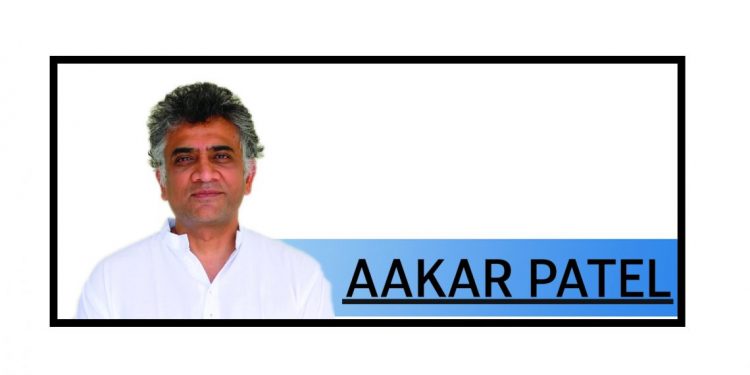Complex problems require many minds. Leadership is important but mostly in terms of directionality. The solutions need to be produced by those implementing, not the person directing. If this is reversed, progress will not be made and generally what results is retardation.
For solutions to be produced below the level of leadership, it is necessary that there be some devolution of authority and power. Such is not the case in India of our times. The leadership of this large and complex nation is centralised in a way that it has never been in our history. There are some parallels with Indira Gandhi but the 1970s was another world.
Some of the most important positions in the Cabinet are filled by those who have never won an election. The finance minister, foreign minister, railways and commerce and industry minister are none of them elected. The previous finance minister was also unelected. They owe their position not to personal political popularity but to the patronage of Modi. They cannot defy him and they will do what he says. That is why they have in fact been chosen and placed there. The moment they defy or question, they will be replaced by someone who will keep their mouth shut but keep their job. There is no devolution of authority and none of the accountability.
When things begin to go wrong in such a place, the leader cannot be blamed or even named. It will be assumed that he is right and the solution lies not in correcting his behaviour but in something else.
A few weeks ago there was this headline in the online publication The Print: “Modi govt plans media blitz for ‘image correction’ to boost India rank on global lists.” It reported that the government was trying to improve India’s ranking on some 30 global indices by “building a massive publicity campaign” which was a “planned perception-overhaul exercise.”
These indices are those which monitor religious, economic, political, media freedoms, the rule of law, innovation, terrorism and other things. Either data is compiled or global experts are asked for their perceptions and then countries given a score or rating.
Many of these are compiled by bodies that are multilateral, such as the World Bank or the United Nations. It is not clear how India will get its poor ratings improved through a media campaign when it comes to such bodies or when it comes to hard data.
For instance India is ranked 142 on the World Press Freedom Index, falling from 140 in 2019 and 138 in 2018. The main reason for its falling is the violence against journalists and the number of internet shutdowns in Kashmir. These are objective things that are measurable. They cannot be corrected by publicity campaigns. This year India has introduced a new media policy in Kashmir that has more or less throttled all freedom of media in that state.
The government’s response in the instance of the media index was to set up its own ‘Index Monitoring Cell’ which would have journalists Rajat Sharma (of Aap ki Adalat fame) and P Sainath. Not much has been heard from this cell since and it will not affect the global rating. India’s ranking in press freedom is not going to improve globally next year either and spending money on marketing an image that is removed from reality is neither wise nor will it be effective.
India’s numbers on Covid are self-declared. These are government numbers. They can and they will be compared to how India is doing versus the rest of the world and particularly the rest of South Asia with which an honest comparison can be made. On infections and fatalities, our performance is below the rest. A media blitz will not correct the perception that India has been the least competent at addressing the issue because the perception is based on reality.
This week news has come that in the current financial year, Bangladesh will overtake India in terms of per capita income. Meaning the average Bangladeshi’s income will be more than the average Indian’s. Even to those who are referred to as Modi haters, this was shocking. It was not expected because India was far ahead of Bangladesh in terms of per capita income in 2014. One reason for their overtaking us is that that the Bangladeshi leadership handled the Covid hit to their economy better. The other reason is that in the last six years, Bangladesh has been growing much faster than India. It would have overtaken us anyway in time. The Covid just made it sooner. It has been a long slide that has not been in the public realm because the leader does not acknowledge it and the minions cannot speak.
It seems like we were talking about competing with China and the US only a few years ago. Now we must first compete with Bangladesh. This is not what we had been promised. How will this be corrected by a media blitz? It will not. But it is what the great man has ordered so it will be done. The slide will continue, the noise about achche din will also continue.







































